Technology Transactions

Can blockchain technology revolutionize the financial industry ?
Blockchain technology has the potential to revolutionize the financial industry by introducing a decentralized, transparent, and secure way of conducting transactions. In this article, we will explore how blockchain technology can transform the financial sector and discuss its benefits and challenges. Benefits of Blockchain in Finance: - Decentralization: Elimination of intermediaries and increased efficiency. - Transparency: Immutable records and audit trail for regulatory compliance. - Security: Distributed ledger and cryptography ensure secure transactions. Challenges of Blockchain in Finance: - Regulatory uncertainty: Lack of clear regulations and compliance issues. - Scalability: Limited throughput and ongoing research for scaling solutions. - Interoperability: Integration with legacy systems and lack of standardization. Potential Use Cases for Blockchain in Finance: - Payments and Remittances: Faster and cheaper cross-border transactions. - Trade Finance: Streamlined processes and automated smart contracts. - Securities Settlement: Real-time settlement and fractional ownership of assets. In conclusion, blockchain technology has the potential to revolutionize the financial industry by introducing a decentralized, transparent, and secure way of conducting transactions. While there are challenges to overcome, such as regulatory uncertainty, scalability concerns, and interoperability issues, the benefits of blockchain in finance are undeniable. As the technology continues to evolve and mature, we can expect to see increased adoption and innovation in the financial sector powered by blockchain technology.

What is blockchain technology and how does it relate to cryptocurrency ?
Blockchain technology is a decentralized, distributedBlockchain technology is a decentralized, distributed transactions in a secure and im It is the foundational structure for cryptocurrencies, which are digital or virtual currencies that use cryptography for security and operate independently of a central bank. The key features of blockchain include decentralization, immutability, transparency, and security. Cryptocurrencies rely on blockchain technology to maintain a transparent and secure system for recording transactions without intermediaries like banks. Transactions are validated by network participants through consensus algorithms like Proof of Work (PoW) or Proof of Stake (PoS), and new coins can be issued as rewards for those who validate transactions and maintain the network. Overall, blockchain technology enables a peer-to-peer electronic cash system that is both secure and decentralized.

How does digital identity verification work in online transactions ?
Digital Identity Verification in Online Transactions: A Comprehensive Guide Digital identity verification is a crucial aspect of online transactions, ensuring the authenticity and security of users. This process involves collecting personal information, verifying it against reliable sources, employing multi-factor authentication, using encryption techniques, and implementing monitoring systems to detect fraudulent activities. By following these steps, businesses can protect their customers' sensitive data and maintain trust in the digital marketplace.

How do I ensure safe transactions when buying or selling second-hand goods online ?
When engaging in online transactions for second-hand goods, it is crucial to take precautions to ensure the safety and security of both parties involved. Here are some tips on how to do so: Research the Seller/Buyer: Check reviews and ratings, verify identity, and be cautious about sharing personal information. Use Secure Payment Methods: Avoid cash transactions, protect financial information, and opt for secure payment methods such as PayPal or credit cards. Meet in Public Places: Arrange for public meetings and bring a friend along for extra security. Inspect the Item Before Purchasing: Thoroughly inspect the item, ask questions, and ensure it matches the description provided by the seller. Keep Records of the Transaction: Save conversation history and request receipts or invoices to document the transaction.

What is blockchain technology and how does it work ?
Blockchain technology is a decentralized, digital ledger that records transactions securely and transparently. It was originally designed for Bitcoin but has since been adapted for various applications. Key features include decentralization, transparency, immutability, and security. The technology works through transaction creation, broadcast, verification, block creation, consensus, addition to the blockchain, and perpetuation. Benefits include enhanced security, elimination of intermediaries, increased transparency, reduced costs, and improved efficiency. Blockchain technology has potential applications beyond cryptocurrency and could transform industries such as finance and supply chain management.
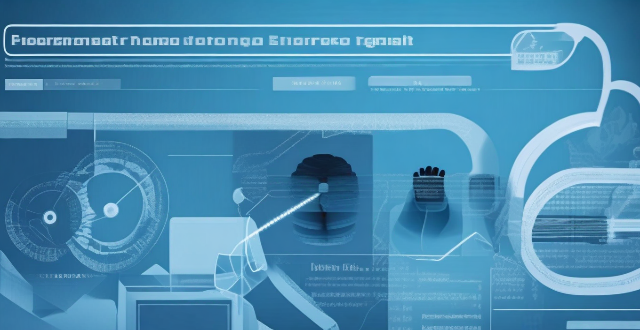
How can blockchain technology be used in supply chain management ?
Blockchain technology is poised to revolutionize supply chain management by offering transparency, traceability, and security. Smart contracts automate transactions, while secure data sharing promotes collaboration. The technology also reduces manual processes, paperwork, and enhances compliance.

What are the challenges and limitations of implementing blockchain technology in various industries ?
The challenges and limitations of implementing blockchain technology in various industries include lack of regulatory clarity, scalability issues, interoperability problems, high energy consumption, limited expertise and talent, privacy concerns, and adoption barriers. These challenges need to be addressed for widespread adoption of blockchain technology.

What are the most promising applications of blockchain technology ?
Blockchain technology offers secure, decentralized, and transparent solutions in various industries. Promising applications include cryptocurrencies, smart contracts, remittances, trading, supply chain traceability, healthcare data management, real estate ownership, government services, and more. These applications can streamline processes, reduce costs, and improve trust and collaboration between parties. As the technology matures, more innovative uses are expected to emerge.
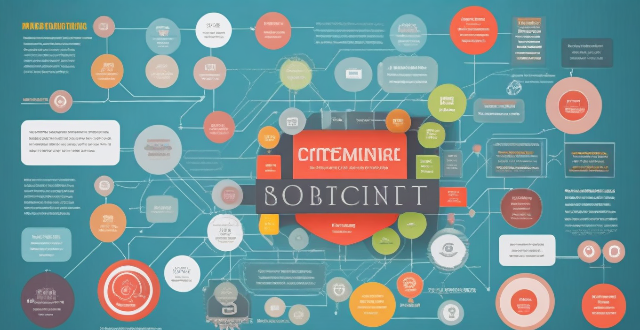
How can smart contracts be used to streamline financial transactions ?
Smart contracts can streamline financial transactions by automating processes, reducing costs, and increasing efficiency. They can automate payments and transfers, act as escrow services, create loan agreements, streamline insurance claims, and facilitate trading and exchanges of financial assets. As blockchain technology evolves, we can expect more innovative uses for smart contracts in the financial industry.

What is the role of blockchain in the financial industry ?
Blockchain technology has emerged as a game-changer in the financial industry, offering unprecedented levels of security, transparency, and efficiency. Its decentralized nature and immutable ledger system have paved the way for innovative applications that are reshaping the financial landscape. In this article, we will explore the various roles of blockchain in the financial industry. One of the key advantages of blockchain is its ability to create trust without the need for intermediaries. Traditional financial systems rely on central authorities, such as banks or clearinghouses, to verify and record transactions. With blockchain, transactions are verified by a network of nodes, each of which maintains a copy of the ledger. This decentralized approach eliminates the need for intermediaries, reducing costs and increasing efficiency. Blockchain provides a transparent and auditable ledger of all transactions. Each transaction is recorded on the blockchain in a tamper-resistant manner, ensuring that any attempt to alter the ledger will be immediately apparent. This level of transparency enhances accountability and reduces the risk of fraud or errors. Smart contracts are self-executing contracts with the terms of the agreement between buyer and seller being directly written into lines of code. These contracts can automatically execute transactions when certain conditions are met, eliminating the need for intermediaries and reducing the risk of non-performance or disputes. Smart contracts have the potential to revolutionize many areas of finance, including insurance, real estate, and supply chain management. Distributed ledger technology (DLT) is at the heart of blockchain's capabilities. It allows multiple parties to have access to a shared database that is secure, transparent, and tamper-proof. DLT enables faster settlement times, improved cash management, and reduced operational risks. It also facilitates cross-border payments and remittances, making them more efficient and cost-effective. Tokenization involves representing physical assets, such as stocks, bonds, or real estate, as digital tokens on a blockchain. This process enables fractional ownership, easier transferability, and increased liquidity. Tokenization also allows for programmable assets, where rules can be embedded into the tokens themselves, enabling automated compliance with regulations and contractual obligations. Blockchain can be used to create a secure and decentralized identity verification system. This system would allow individuals to control their own identity information and share it selectively with third parties while maintaining privacy. Such a system could significantly reduce identity fraud and streamline processes that require identity verification, such as opening bank accounts or applying for loans. Blockchain's transparency and immutability make it an ideal tool for regulatory compliance. By using blockchain to record all financial activities, regulators can easily monitor and analyze transactions in real-time, identifying potential violations and enforcing compliance more effectively. This could lead to more efficient regulation and better protection for consumers and investors. In conclusion, blockchain technology has the potential to transform the financial industry by improving efficiency, reducing costs, enhancing security, and promoting transparency. From decentralization and trust to smart contracts and tokenization, blockchain is poised to disrupt traditional financial models and create new opportunities for innovation and growth. As adoption continues to accelerate, we can expect to see even more exciting developments in the years ahead.

How has technology improved food safety monitoring and compliance ?
This article discusses how technology has played a crucial role in enhancing food safety measures. It covers traceability systems, sensor technology, data analytics, automation and machine learning, and blockchain technology. Traceability systems allow for the tracking of products from farm to table using barcodes, QR codes, and RFID tags. Sensors monitor various parameters that impact food safety, such as temperature, humidity, and chemical composition. Data analytics tools process vast amounts of collected data to identify patterns, trends, and potential risks. Automated systems reduce human error and increase efficiency in food processing plants, while machine learning algorithms enhance decision-making processes based on learned behaviors from past data. Blockchain offers a decentralized way to record transactions securely and transparently when applied to food supply chains. By leveraging these technological advancements, we can work towards a future where food safety concerns are minimized, benefiting both consumers and industry stakeholders alike.

How can blockchain technology be used in voting systems to ensure transparency and fairness ?
Blockchain technology, known for its role in cryptocurrencies, can enhance voting systems by ensuring transparency, security, and fairness. It provides immutable record keeping, public verifiability, and a comprehensive audit trail. Blockchain also protects voters' identities, decentralizes the voting process, and automates vote counting. Implementing this technology requires designing the blockchain infrastructure, developing a user-friendly interface, testing, pilot programs, stakeholder education, and full implementation. However, challenges such as scalability, user adoption, legal and regulatory hurdles, and technical security must be addressed.

Can I use Cross-Border Payment for personal transactions ?
Cross-border payment systems are designed to facilitate international transactions, allowing individuals and businesses to send and receive money across borders. These systems can be used for various purposes, including personal transactions. In this article, we will discuss the use of cross-border payment systems for personal transactions and provide some tips on how to make the most of them. Cross-border payment refers to the process of transferring money from one country to another. This can be done through various methods, such as wire transfers, credit cards, or digital wallets. The main purpose of cross-border payment systems is to simplify the process of sending and receiving money internationally, making it easier for people to conduct business or personal transactions with others around the world. While cross-border payment systems are primarily used for business transactions, they can also be used for personal transactions. Here are some examples of when you might use a cross-border payment system for personal transactions: Sending Money to Friends and Family Abroad: If you have friends or family members living in another country, you may need to send them money occasionally. Cross-border payment systems allow you to do this quickly and easily, without having to worry about exchange rates or bank fees. Paying for Online Shopping: Many online retailers offer international shipping, allowing you to purchase goods from other countries. When paying for these purchases, you can use a cross-border payment system to ensure that your payment is processed securely and efficiently. Travel Expenses: When traveling abroad, you may need to pay for expenses such as accommodation, transportation, or food. Cross-border payment systems can be useful in these situations, as they allow you to make payments in local currencies without having to carry large amounts of cash. To make the most of cross-border payment systems for personal transactions, consider the following tips: Choose the Right Provider: Not all cross-border payment systems are created equal. Some may offer better exchange rates or lower fees than others. Research different providers before choosing one to ensure that you get the best deal possible. Understand Fees and Exchange Rates: Before making any cross-border payment, be sure to understand the fees and exchange rates involved. Some providers may charge additional fees for certain types of transactions, so it's important to know what you're getting into before sending money. Keep Track of Your Transactions: When using cross-border payment systems for personal transactions, it's important to keep track of your transactions. This will help you stay organized and ensure that you don't overspend or lose track of your finances. Be Aware of Scams: Unfortunately, there are scammers who target people using cross-border payment systems. Be cautious when sharing personal information or sending money to someone you don't know well. If something seems suspicious, trust your instincts and report it to the appropriate authorities. In conclusion, cross-border payment systems can be a convenient and efficient way to handle personal transactions with people in other countries. By choosing the right provider, understanding fees and exchange rates, keeping track of your transactions, and being aware of potential scams, you can make the most of these systems and enjoy smoother international financial interactions.
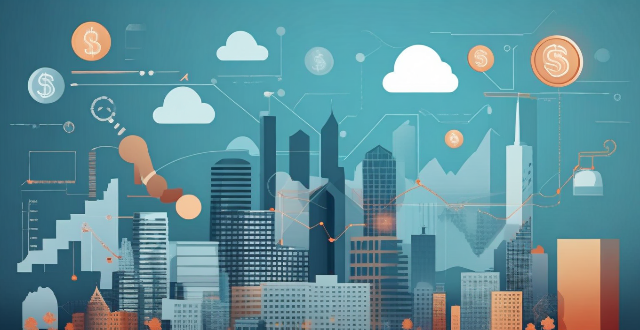
What role does technology play in modern finance and banking ?
Technology has revolutionized the finance and banking industry by enhancing efficiency, improving customer experience, and driving innovation. Automation, streamlined processes, and cost reduction have made financial services more efficient. Personalization, accessibility, and advanced cybersecurity measures have improved customer experiences. Fintech startups, blockchain technology, and cryptocurrencies are driving innovation in the industry. As technology continues to evolve, it will play an even greater role in shaping the future of finance and banking.
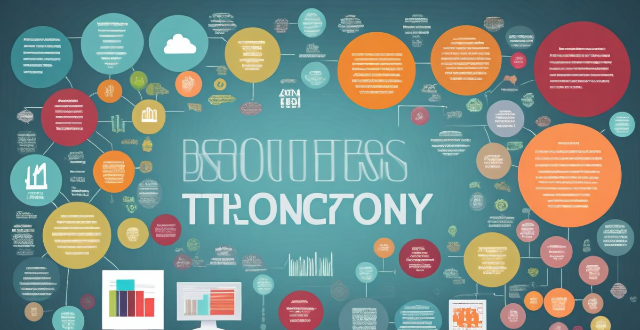
How has technology impacted international cooperation in recent years ?
The text discusses the impact of technology on international cooperation in various sectors such as communication, collaboration tools, access to information, globalization of trade and commerce, and environmental sustainability. Technology has improved communication through instant messaging, social media, and email, enhanced collaboration tools like project management software and video conferencing, increased access to information with open source data and online news sources, globalized trade and commerce through e-commerce platforms and digital payment systems, and promoted environmental sustainability with climate modeling and renewable energy technologies. Overall, technology has had a significant positive impact on international cooperation.
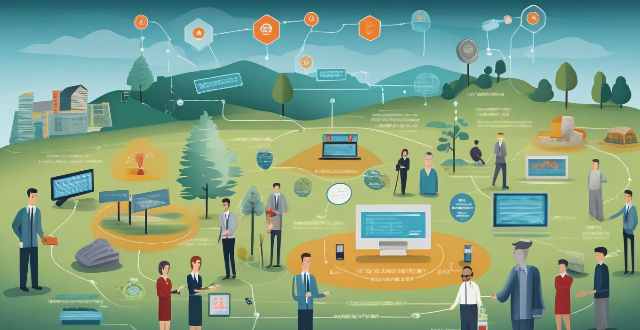
Can blockchain technology improve data security and privacy ?
Blockchain technology has been touted as a revolutionary tool that can improve data security and privacy. Its decentralized nature, encryption, and transparency make it difficult for attackers to compromise the network. Additionally, its anonymity, control over personal data, and smart contracts enhance privacy by giving individuals more control over their information.
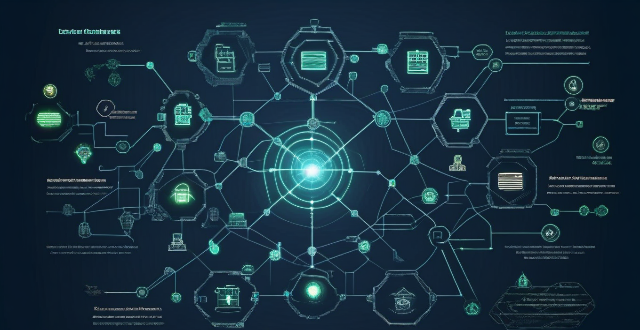
What is the future of blockchain beyond cryptocurrency ?
This article explores the potential applications of blockchain technology beyond cryptocurrency, highlighting key areas such as decentralized finance (DeFi), supply chain management, healthcare, government services, and intellectual property rights management. It emphasizes how blockchain can improve transparency, security, efficiency, and accessibility in these sectors through features like peer-to-peer transactions, smart contracts, tokenization, traceability, interoperability, data privacy, identity management, public records storage, voting systems, proof of ownership, streamlined licensing, and fraud prevention. The article concludes by stating that the future prospects of blockchain technology are vast and promising, offering numerous opportunities for innovation and transformation across various industries.
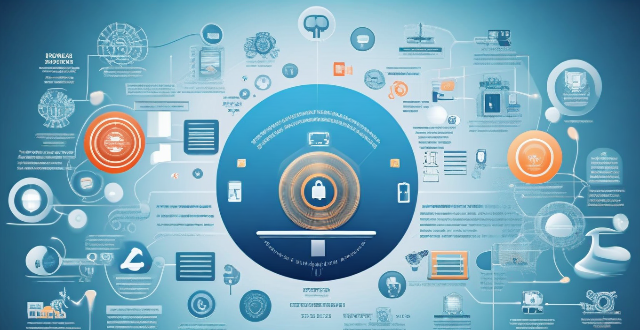
Can you explain how blockchain technology works and its potential applications ?
Blockchain technology is a decentralized, digital ledger that records transactions in a secure and transparent manner. It works through a peer-to-peer network of computers (nodes) without a central authority, using cryptography to secure data and verify participants' identities. A consensus mechanism ensures all nodes agree on the state of the ledger, making it immutable and transparent. Transactions are validated, grouped into blocks, added to the chain, and distributed to all nodes. Potential applications include finance (cryptocurrencies, smart contracts, remittances), non-financial areas (supply chain management, health records, voting systems, identity verification), and other sectors like real estate and intellectual property rights. Blockchain promises increased efficiency, security, and transparency across various industries.

What is a smart contract ?
Smart contracts are self-executing contracts with the terms of the agreement between buyer and seller being directly written into lines of code, which exist across a distributed, decentralized blockchain network. They allow for transactions and the transfer or distribution of cryptocurrencies to be executed automatically without the need for a central authority, legal system, or external enforcement mechanism. Smart contracts are autonomous, immutable, traceable, and decentralized. They have various use cases such as cryptocurrency transactions, insurance claims, supply chain management, real estate transactions, gambling and betting, and legal documents. The benefits of smart contracts include efficiency, transparency, security, speed, and accuracy. However, there are challenges and considerations such as code quality, lack of legal recognition, interoperability issues, and privacy concerns.

What is the role of blockchain technology in cryptocurrency investments ?
Blockchain technology is crucial for cryptocurrency investments, enabling secure, decentralized transactions without intermediaries. It offers decentralization, transparency, immutability, smart contracts, security, speed and efficiency, and global accessibility, making it integral to the future of investing in cryptocurrencies.

Can blockchain technology help combat climate change ?
Blockchain technology can contribute to the fight against climate change by enhancing transparency, efficiency, and traceability in areas such as carbon credit trading, renewable energy management, and sustainable supply chain management. However, challenges related to scalability, energy consumption, and regulation must be addressed to fully realize its potential benefits.

Can I trust cashback websites for my online transactions ?
Cashback websites can offer significant savings and convenience, but also come with certain risks and limitations. To safely enjoy the benefits they provide, users should research thoroughly, check privacy policies, monitor accounts, read terms & conditions, and use secure networks. By being cautious and informed, one can avoid potential downsides such as privacy concerns, delayed payments, limited redemption options, scams, and hidden fees.

What are the tax implications of investing in cryptocurrencies ?
Investing in cryptocurrencies can have significant tax implications that investors should be aware of. Here are some key considerations: ### Capital Gains Tax Capital gains tax is a tax on the profit realized on the sale of an asset. When you sell your cryptocurrency for more than you paid for it, you may owe capital gains tax on the difference between the purchase price and the selling price. The tax rate depends on your income level and how long you held the asset before selling it. - Short-term capital gains tax applies to assets held for less than a year and is taxed at your ordinary income tax rate. - Long-term capital gains tax applies to assets held for more than a year and is typically taxed at a lower rate than short-term gains. ### Income Tax If you earn income from mining or staking cryptocurrency, you may owe income tax on that income. Mining involves using computer processing power to validate transactions on the blockchain and earn new coins as a reward. Staking involves holding coins in a wallet and earning interest or rewards for supporting the network. Both activities can generate taxable income. ### Tax Deductions You may be able to deduct certain expenses related to your cryptocurrency investments, such as trading fees, software costs, and other expenses necessary to maintain your investment. However, these deductions are subject to specific rules and limitations, so consult with a tax professional to ensure you qualify. ### Reporting Requirements The IRS requires taxpayers to report all cryptocurrency transactions on their tax returns, including purchases, sales, trades, and income earned from mining or staking. Failure to report these transactions can result in penalties and interest charges. It's essential to keep accurate records of all your cryptocurrency transactions throughout the year. ### Tax Planning Strategies To minimize your tax liability when investing in cryptocurrencies, consider implementing tax planning strategies such as: - **Holding Assets Long-Term**: By holding your cryptocurrency for more than a year before selling it, you can take advantage of lower long-term capital gains tax rates. - **Harvesting Losses**: If you have losses on some of your cryptocurrency investments, you can offset those losses against gains made on other investments to reduce your overall tax liability. - **Donating Cryptocurrency to Charity**: Donating cryptocurrency to a qualified charity can provide a tax deduction while also supporting a cause you care about. In conclusion, investing in cryptocurrencies has several tax implications that investors should be aware of and plan for accordingly. It's essential to stay informed about changing regulations and consult with a tax professional to ensure compliance with IRS requirements.

What are the latest trends in basketball shoe design and technology ?
The latest trends in basketball shoe design and technology include the use of lightweight materials, energy return systems, customization options, sustainability initiatives, and smart technology integration. These advancements aim to enhance performance, style, and environmental consciousness while providing players with personalized footwear choices.
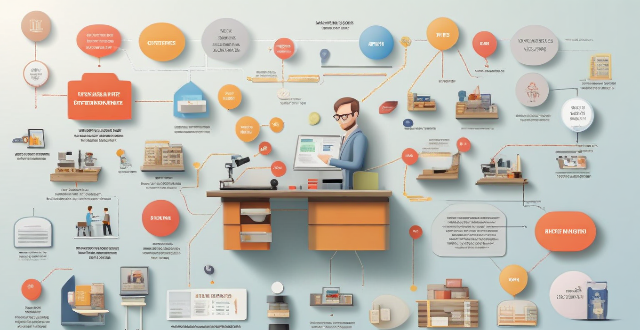
How can blockchain technology be used to prevent counterfeit products ?
Blockchain technology is a powerful tool in the fight against counterfeit products. It ensures product authenticity through digital certificates and smart contracts, enhances traceability by providing a transparent view of the supply chain and end-to-end tracking, improves accountability with data integrity and a complete audit trail, leverages decentralization to prevent manipulation, integrates with IoT devices for automatic verification and real-time monitoring, collaborates with regulatory authorities for compliance and cross-border cooperation, and educates consumers and businesses on its benefits. With blockchain, we can expect significant reductions in counterfeit products in the marketplace.

How has technology revolutionized the healthcare industry ?
The healthcare industry has been transformed by advancements in technology, including electronic health records, telemedicine, wearable devices, medical imaging tools, and robotic surgery. These innovations have improved efficiency, expanded access to care, and enhanced patient outcomes. As technology continues to evolve, it will play an increasingly important role in shaping the future of healthcare.

What are the ethical considerations surrounding the use of carbon capture technology ?
Carbon capture technology is a method used to reduce carbon dioxide emissions, but it raises ethical concerns such as cost and accessibility, potential environmental impact, long-term effects, and accountability. It is important to ensure that the technology is implemented responsibly and equitably.

What role does technology play in climate adaptation ?
The article discusses the various ways in which technology can aid in climate adaptation. It mentions data collection and analysis, modeling and prediction, infrastructure development, agriculture and food security, water management, and health and well-being as key areas where technology is used. The article concludes that technology plays a crucial role in understanding and mitigating the challenges posed by climate change.
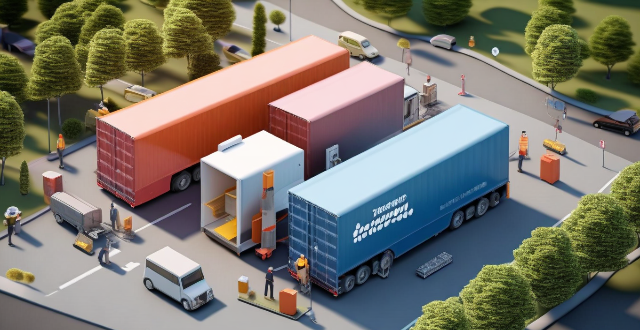
How can blockchain technology improve supply chain management in transportation ?
Blockchain technology can improve supply chain management in transportation by providing enhanced transparency, increased efficiency, improved security, and greater collaboration. This can lead to reduced costs, faster dispute resolution, and improved customer satisfaction. Blockchain allows for real-time tracking of goods, shared data access, automated processes, and reduced paperwork. It also ensures data integrity, builds trust among parties, and helps mitigate risks. By encouraging collaboration and open standards, blockchain promotes innovative solutions that can further improve supply chain management in transportation.
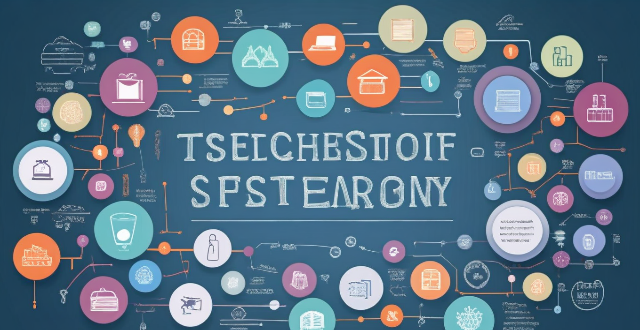
What role does technology play in modern education systems ?
The text discusses the role of technology in modern education systems, highlighting its ability to enhance accessibility, personalize learning experiences, improve collaboration and communication, refine assessment methods, and facilitate lifelong learning. It also acknowledges potential challenges such as the digital divide, overreliance on technology, and data privacy concerns. The conclusion emphasizes that while technology offers numerous opportunities for education enhancement, it should be integrated thoughtfully to avoid potential pitfalls.